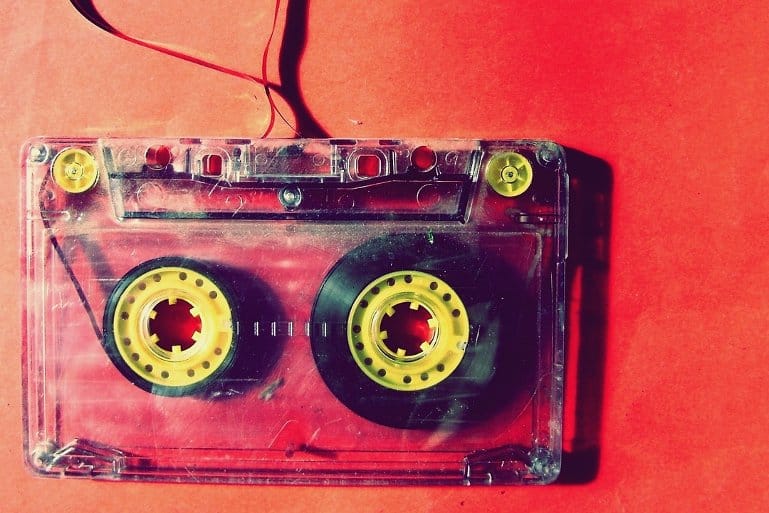Summary: As we age, most of us tend to stop paying attention to new music and stick with the songs from our past. Researchers explore why we narrow our horizons for exploring new music as we age and say listening to new tracks can help create new memory bonds and experience new pleasures.
Source: The Conversation
According to an estimate from the International Federation of the Phonographic Industry, an organization that represents the international music industry, people around the world spend on average 20.1 hours per week listening to music, up from 18.4 hours in 2021.
We have more ways to access music than at any time in history and a whole world of unfamiliar styles to explore.
The thrill of discovering new songs and new sounds can enrich people of all ages.
Except, most of the time, it doesn’t.
Our willingness to explore new or unfamiliar music declines with age. Multiple studies confirm the sentiments of US songwriter and musician Bob Seger:
Today’s music ain’t got the same soul
I like that old time rock ‘n’ roll
Exploring new music
Academics use the term “open-earedness” to describe our willingness to explore new music. Across our lives this willingness waxes and wanes.
Until around the age of 11, children are generally happy to engage with unfamiliar music. Early adolescence sees a reduction in open-earedness, but is accompanied by an intense increase in interest in music more generally. Open-earedness increases slightly during young adulthood, then declines as we age.
A major 2013 study involving more than 250,000 participants confirmed these changing behaviours. It also showed that the significance we ascribe to music after adolescence declines, and the amount of music we listen to reduces from a high point of 20% of our waking time during adolescence, to 13% in adulthood.
Shifting priorities
Researchers have different, but generally complementary, theories to account for these population-level trends. Some interpret the observed decline in music engagement in terms of psychosocial maturation.
Adolescents use music as an identity marker and engage with it to navigate social circles. Adults have developed personalities and established social groups. As such, drivers to engage with new music are lessened.
These same researchers point to age-related changes to hearing acuity – specifically a lowering tolerance for loud and high-frequency sound – as one cause for a reduced interest in new music for some people.
One explanation for the age-based reduction in music consumption simply posits that responsibility-laden adults may have less discretionary time to explore their musical interests than younger people.
Some scholars question whether there is a straightforward link between the decline in the rate of new music consumption and increasing music intolerance.
Others argue against using chronological age as a predictor for stagnant musical taste without first considering the different ways we process and use music across our lifespan. Teenagers tend to be very aware of what they are listening to. Adults who use music as motivation or accompaniment for activities such as exercise or menial tasks may be less conscious of the extent to which they actually do listen to new music.
There is consensus that people are highly likely to have their taste shaped by the music they first encounter in adolescence.

Adolescence shapes musical taste firstly because our brains are developed to the point where we can fully process what we’re hearing, and secondly because the heightened emotions of puberty create strong and lasting bonds of memory.
Soundtrack of our lives
Neuroscience provides some fascinating insights into how and why our musical tastes develop. We know, for example, infants display an affinity to music they heard in utero.
Also, musical taste boils down to familiarity. In his book This is Your Brain on Music, neuroscientist Daniel Levitin writes:
when we love a piece of music, it reminds us of other music we have heard, and it activates memory traces of emotional times in our lives.
What we think of as our “taste” is simply a dopamine reaction arising from patterns our brain recognises which create the expectation of pleasure based on pleasures past. When we stop actively listening to new or unfamiliar music the link between the musical pattern and pleasure is severed.
It may take a decade or two to get there, but the result is, eventually, “young people’s music” will alienate and bring no pleasure.
So, are we doomed to musical obsolescence as we age? Far from it. Recent research suggests musical taste does not need to calcify but can continue to develop across our lives.
Expanding our horizons
Here are some tips if you want to train your musical taste to extend beyond the “old favourites” of youth:
- cultivate different modes of listening including in formal (concerts), focused (solitary), casual (as an accompaniment to other activity) and social settings
- make listening habitual
- be curious about what you’re listening to. You can help your brain form new patterns by knowing something of the story behind the music
- be patient and persistent. Don’t assume because you don’t immediately like an unfamiliar piece that it’s not worth listening to. The more you listen, the better your brain will be at triggering a pleasure response
- find a friend to give you recommendations. There’s a good chance you’ll listen to music suggested to you by someone you like and admire
- keep listening to the music you love, but be willing to revisit long-held beliefs, particularly if you describe your musical taste in the negative (such as “I hate jazz”); it’s likely these attitudes will stifle your joy
- don’t feel you have to keep up with new music trends. We’ve 1,000 years of music to explore.
If, after making the effort, you still find new popular music hard to bear, take solace from songwriter Ben Folds, who says in his memoir:
Good pop music, truly of its moment, should throw older adults off its scent. It should clear the room of boring adults and give the kids some space.
About this music, aging, and neuroscience research news
Author: Timothy McKenry
Source: The Conversation
Contact: Timothy McKenry – The Conversation
Image: The image is in the public domain







